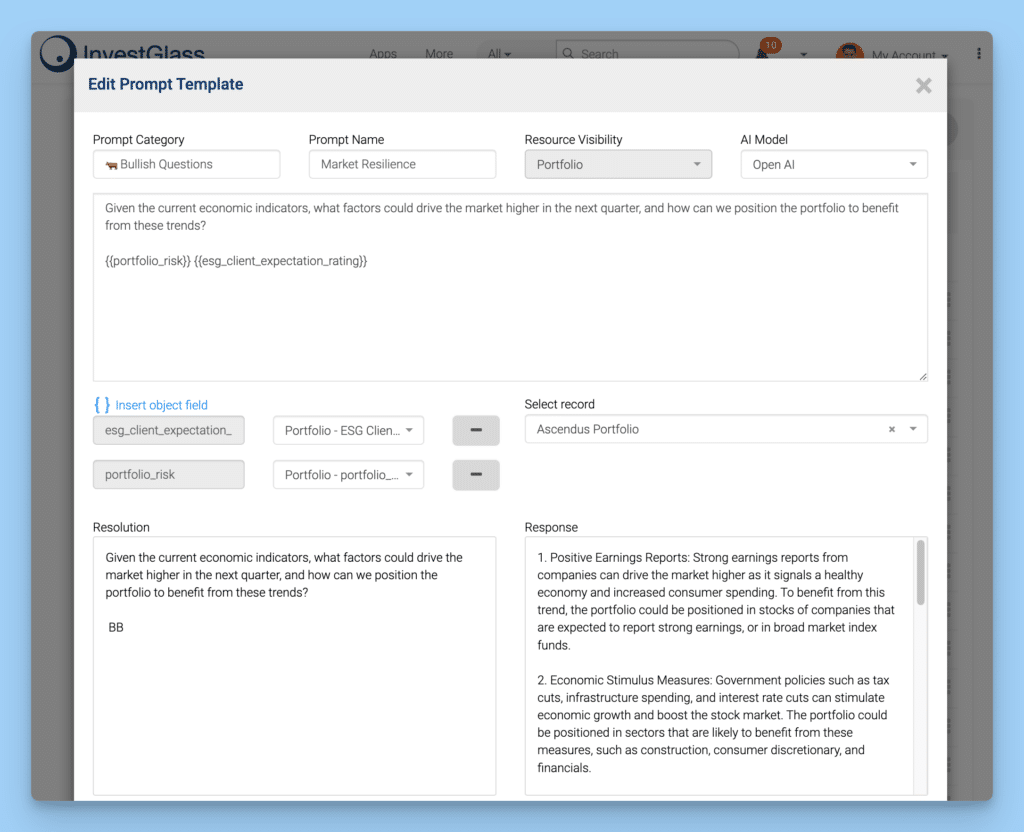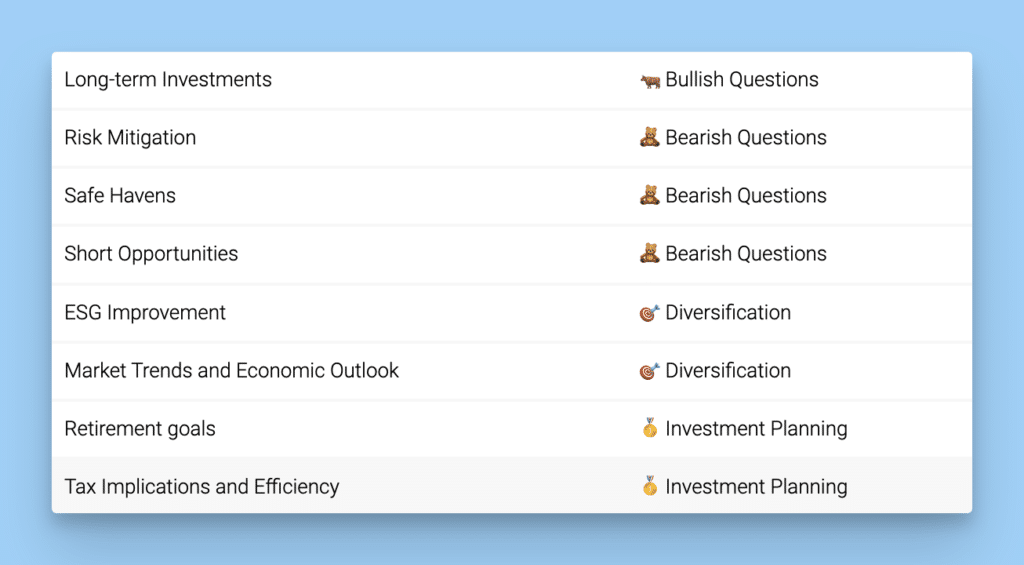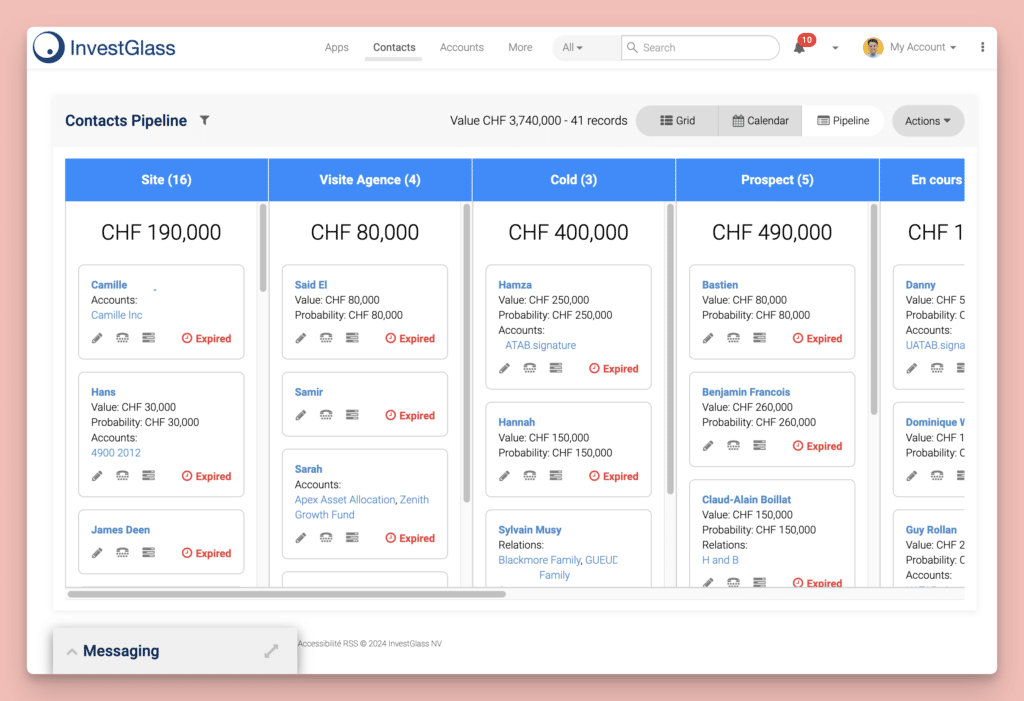Boost Your Sales Strategy: Top AI for Sales Tools in 2024

AI-driven sales tools are revolutionizing lead generation, personalization, and deal closures. According to McKinsey, 63% of organizations that have adopted artificial intelligence have reported an uptick in revenue. Similarly, a Salesforce survey found that 81% of sales teams are investing in AI, with 83% of those teams experiencing revenue growth in the past year.
This data underscores the significant impact of AI on sales performance, highlighting its role in enhancing efficiency and driving revenue growth.
Curious about how AI can supercharge your sales strategy? In this article, we’ll explore ‘ai for sales’ and how it can automate tasks, improve customer targeting, and boost sales efficiency. Discover top AI tools for 2024 and practical insights on implementing them.Key Takeaways
- AI enhances sales strategies by automating routine tasks, enabling sales teams to focus on building relationships and closing deals.
- The adoption of AI tools in sales has skyrocketed, with a significant increase in users, highlighting the necessity of AI for modern sales success.
- Integrating AI into sales processes leads to improved efficiency, better customer targeting, and dramatic boosts in productivity, helping the sales team thrive.
Understanding AI for Sales
 AI in sales involves the application of algorithms. It also utilizes analytical tools to automate and improve sales operations. Transforming traditional sales methods, AI has become an indispensable tool for sales professionals. AI enhances sales processes by automating routine tasks, analyzing customer interactions, and offering valuable insights. Imagine eliminating the repetitive data entry chores that bog down your day and instead focusing on building customer relationships and closing deals. With AI, you can eliminate manual data entry, making your research more efficient and effective.
Sales organizations leverage AI to augment their human salespeople, enhancing their effectiveness rather than replacing them. Despite common concerns, AI will not replace sales jobs but will elevate the roles of salespeople, allowing them to focus on what they do best—connecting with clients and driving sales.
By handling the busywork, AI empowers the sales team to prioritize high-value activities, thus transforming the entire sales process.
AI in sales involves the application of algorithms. It also utilizes analytical tools to automate and improve sales operations. Transforming traditional sales methods, AI has become an indispensable tool for sales professionals. AI enhances sales processes by automating routine tasks, analyzing customer interactions, and offering valuable insights. Imagine eliminating the repetitive data entry chores that bog down your day and instead focusing on building customer relationships and closing deals. With AI, you can eliminate manual data entry, making your research more efficient and effective.
Sales organizations leverage AI to augment their human salespeople, enhancing their effectiveness rather than replacing them. Despite common concerns, AI will not replace sales jobs but will elevate the roles of salespeople, allowing them to focus on what they do best—connecting with clients and driving sales.
By handling the busywork, AI empowers the sales team to prioritize high-value activities, thus transforming the entire sales process.
Definition of AI in Sales
Artificial intelligence (AI) in sales refers to the use of advanced algorithms and analytical tools to automate and enhance sales operations. By leveraging technologies such as machine learning and natural language processing, AI can analyze vast amounts of customer data to predict customer behavior and provide personalized recommendations to sales teams. The primary goal of AI in sales is to boost efficiency and effectiveness while reducing operational costs. For instance, AI can help sales teams identify high-potential leads, tailor their sales pitches, and streamline administrative tasks, ultimately driving better sales outcomes.Brief History of AI in Sales
The journey of artificial intelligence (AI) in sales is a fascinating tale of rapid evolution and transformative impact. The concept began to take shape in the early 2000s with the advent of basic automation tools and predictive analytics. However, it wasn’t until the 2010s that AI truly started to revolutionize the sales industry. A pivotal moment came in 2016 with the introduction of Salesforce’s Einstein platform. As one of the first AI-powered sales platforms, Einstein utilized machine learning to analyze customer data and provide personalized recommendations to sales reps. This innovation marked a significant leap forward, demonstrating the potential of AI to enhance sales processes. Since then, the landscape of AI in sales has continued to expand. Today, a plethora of AI-powered tools and platforms are available, ranging from chatbots and email automation tools to advanced predictive analytics and sales forecasting software. These tools have become indispensable for modern sales teams, enabling them to work more efficiently and effectively. Despite its relatively short history, AI has already made a profound impact on the sales industry. According to Gartner, the use of AI in sales is expected to increase by 50% by 2025, with 75% of sales organizations utilizing AI-powered tools by 2027. This trend underscores the growing importance of AI in shaping the future of sales.The Importance of AI in Sales Operations
AI has revolutionized the sales industry by taking over boring tasks, improving customer targeting, and increasing efficiency. Over half of businesses have increased their investments in generative AI, making it essential for modern sales strategies. Sales teams benefit from automating repetitive tasks and analyzing customer data, boosting both efficiency and effectiveness. It’s no wonder that many sales professionals view AI as an invaluable resource supporting their responsibilities. The adoption of AI in sales is growing rapidly. From 2023 to 2024, the percentage of salespeople using AI jumped from 24% to 43%. This significant rise in adoption underscores AI’s critical role in today’s sales operations. Moreover, an overwhelming 87% of sales professionals report heightened usage of CRM tools due to AI integrations, indicating AI’s profound impact on sales processes. Looking ahead, by 2028, it is projected that 70% of B2B buyers in the U.S. will depend on AI during their purchasing decisions. This trend further highlights the importance of integrating AI into your sales strategy to stay competitive. AI tools for sales enhance efficiency and customer targeting through automation and optimization, allowing for more effective selling.Key Benefits of AI in Sales

How AI Enhances Sales Processes
AI-driven automation streamlines repetitive tasks, allowing the sales team to focus on data analysis and strategic activities. In this section, we will delve into how AI enhances sales processes through automating repetitive tasks, analyzing sales calls, and providing real-time sales guidance. These advancements lead to increased sales productivity by allowing sales representatives to prioritize their interactions more effectively.Automating Repetitive Tasks
Automating tasks like manual data entry and administrative chores is one way AI boosts efficiency. AI handles tasks such as drafting emails, conducting competitive research, and analyzing data, freeing up valuable time for sales professionals. By using AI to eliminate manual data entry, the sales team can concentrate on high-value activities, reducing time spent on tedious tasks. Moreover, AI can streamline follow-up processes by minimizing the need for multiple manual touchpoints. Automating email outreach allows for scaling communication and improving efficiency in sales workflows. Currently, around 30% of sales tasks can be automated using existing AI technologies, showcasing the potential for even greater efficiency gains.Analyzing Sales Calls
AI provides insights on sales calls that may be missed by humans. Salespeople often find it difficult to gather information case-by-case when analyzing calls manually, but AI can quickly identify key moments and extract actionable insights. Tools like Chorus can recognize context and identify crucial moments in calls, providing a comprehensive analysis that enhances sales performance. Furthermore, AI can analyze customer interactions to assess sentiment, categorizing them as positive, negative, or neutral. This sentiment analysis helps sales teams understand customer emotions and tailor their approaches accordingly, leading to more effective sales conversations and stronger customer relationships.Real-Time Sales Guidance
Real-time insights from AI can assist sales reps in cross-selling and upselling by suggesting relevant products to customers. AI-driven insights can also improve sales objection handling by providing real-time information and responses during customer interactions. Imagine being able to adjust your sales pitch on the fly based on immediate feedback—generative AI makes this possible, enhancing the effectiveness of sales calls. Sales representatives can enhance their sales call preparation by using AI to gather relevant customer insights quickly, enabling the sales team to tailor their conversations to the specific needs and preferences of each customer. This preparation enables sales reps to tailor their conversations to the specific needs and preferences of each customer, increasing the likelihood of closing deals and building long-term relationships.Lead Scoring and Prioritization
Lead scoring and prioritization are essential components of any successful sales process. By setting up scores to leads based on their CSP, behaviour, demographics, and other factors, sales teams can quickly identify which leads are most likely to convert. AI-powered tools take this process to a whole new level. These advanced tools analyze vast amounts of customer data to identify patterns and trends that might not be immediately apparent to human sales reps. For instance, an AI-powered lead scoring tool can evaluate a lead’s website behavior, social media activity, and email engagement to gauge their interest in a product or service. Based on this analysis, the tool assigns a score to the lead, helping sales reps prioritize their outreach efforts more effectively. Popular AI-powered lead scoring and prioritization tools include HubSpot, Marketo, and Pardot. These platforms leverage machine learning algorithms to analyze customer data and provide personalized recommendations, enabling sales teams to focus on the most promising leads. By streamlining the lead scoring process, AI tools help sales teams improve their efficiency and increase their chances of closing deals.Sales Email and Subject Line Generation
AI-powered sales email and subject line generation tools are revolutionizing how sales teams create personalized and effective email campaigns. These tools utilize machine learning algorithms to analyze customer data and generate email content that resonates with individual recipients. By understanding customer preferences and behaviors, AI can craft compelling subject lines and email bodies that increase open rates and engagement. This not only saves time for sales teams but also enhances the likelihood of converting leads into customers. With AI handling the heavy lifting, sales professionals can focus on building relationships and closing deals.Improving Sales Forecasting with AI

Personalizing Customer Interactions
AI can enhance customer engagement through chatbots that provide real-time support and personalized recommendations. AI tools can enhance the personalization of outreach, leading to significantly higher transaction rates compared to generic sales emails. By analyzing customer data, AI helps craft personalized marketing campaigns that resonate with individual preferences, benefiting the sales team. Personalized communication affects brand loyalty, with 71% of consumers stating it influences their customer behavior. AI personalization can lead to customer experiences that feel tailor-made, thereby increasing customer satisfaction and loyalty. AI can identify customer preferences and tailor interactions, making each customer feel prioritized and valued. This level of personalisation helps build deeper relationships and fosters long-term customer loyalty.Popular AI Tools for Sales Teams

HubSpot Sales Hub
HubSpot Sales Hub is a CRM tool that improves workflow for the sales team by leveraging AI for data gathering. HubSpot’s AI tools are designed for enhanced efficiency and time-saving capabilities, making it easier for sales professionals to manage their tasks. Key functionalities of HubSpot Sales Hub include forecasting, prospecting, and scheduling meetings, all of which contribute to a more streamlined sales process. The pricing for HubSpot Sales Hub is $500 a month or $5,400 a year for premium editions. This investment provides sales teams with powerful AI tools that can significantly enhance their productivity and effectiveness.Gong.io
Gong.io’s primary function is to analyze sales calls and meetings for insights and coaching. Gong captures and analyzes interactions with prospects and customers, providing insights into key topics and relationship dynamics. This detailed analysis helps the sales team understand what strategies are most effective and where improvements can be made. Moreover, Gong offers insights on what strategies are most effective, aiding in the coaching of sales representatives. By using Gong.io, sales teams can continuously refine their techniques and improve their overall performance.Drift
Drift is an AI-powered conversational platform that enhances interaction with potential buyers. Drift’s platform allows for flexible conversational pathways, providing deep insights into customer needs and preferences. This flexibility makes it easier for the sales team to engage with prospects in meaningful ways, ultimately driving better sales outcomes.Salesforce Einstein
Salesforce Einstein is a suite of AI-powered tools integrated into the Salesforce platform, designed to enhance sales processes through advanced machine learning algorithms. Einstein analyzes customer data to provide personalized recommendations and insights, making it an invaluable asset for sales teams. One of Einstein’s standout features is its ability to analyze sales calls and provide detailed insights into customer behavior and preferences. By examining interactions, Einstein can identify key moments and suggest strategies to improve future calls. Additionally, Einstein can generate personalized email content and subject lines, further enhancing the effectiveness of sales communications. Einstein also excels in predictive analytics and sales forecasting. By analyzing historical data and market trends, Einstein can provide accurate forecasts, helping sales teams make informed decisions and strategize more effectively. According to Salesforce, Einstein has been shown to increase sales productivity by up to 30% and improve sales forecasting accuracy by up to 25%. For sales teams looking to stay ahead of the curve, Salesforce Einstein offers a powerful suite of tools that can significantly enhance their performance and efficiency.Quantified AI’s Sales Simulator
Quantified AI’s Sales Simulator is a groundbreaking tool that uses AI to simulate real-world sales scenarios, providing sales reps with a virtual environment to practice their skills. This innovative approach allows sales reps to receive feedback and coaching from AI-powered avatars, helping them refine their techniques and improve their performance. The Sales Simulator uses machine learning algorithms to analyze the sales rep’s performance, offering personalized feedback and recommendations. This tool is particularly useful for training new sales reps, as it helps them develop the skills they need to succeed in the field without the risk of making costly mistakes. One of the key benefits of the Sales Simulator is its ability to reduce the time and cost associated with traditional sales training methods. By providing a virtual environment for practice, the simulator helps sales reps build confidence and competence more quickly. According to Quantified AI, the Sales Simulator has been shown to improve sales performance by up to 20% and reduce training time by up to 50%. For sales teams looking to enhance their training programs and boost overall performance, Quantified AI’s Sales Simulator offers a cutting-edge solution that leverages the power of AI to deliver tangible results.Implementing AI in Your Sales Strategy
The first step in incorporating AI into sales processes is to identify simplifying or optimizing aspects of the process for the sales team. After identifying these aspects, sales teams should find AI tools that suit their unique needs. This section covers training sales teams on AI tools, along with ensuring compliance and ethical AI use in sales activities.Training Sales Teams on AI Tools
Training the sales team on AI tools enhances their efficiency and understanding of customer needs. Gaining buy-in from all stakeholders is crucial, as skepticism towards AI can hinder adoption. Hands-on training sessions are more effective than theoretical presentations, providing practical experience that helps sales reps become comfortable with the new technology. Patience is also key when training sales teams, as the learning curve can vary among individuals. To fully leverage AI tools, proper training is essential. Additionally, support plays a crucial role in maximizing their effectiveness. Investing in comprehensive training programs ensures teams are well-equipped to use AI effectively, enhancing sales performance and customer interactions.Integrating AI with Existing Sales Process
Integrating AI with existing sales processes can significantly enhance the efficiency and effectiveness of sales teams. One approach is to use AI-powered tools to automate repetitive tasks such as data entry and lead scoring, freeing up valuable time for sales reps to focus on high-value activities. Additionally, AI-powered analytics can provide deep insights into customer behavior and preferences, enabling sales teams to tailor their interactions and strategies accordingly. Real-time AI guidance can also assist sales reps during customer interactions, offering suggestions for cross-selling, upselling, and handling objections. By seamlessly integrating AI into their workflows, sales teams can optimize their sales processes and achieve better results.Ensuring Compliance and Ethical Use
It is essential to implement guidelines that ensure ethical practices in the use of AI-generated content by the sales team. Compliance with data privacy regulations is critical when employing generative AI in sales activities. Harmonizing AI use with ethical standards and compliance fosters trust and long-term relationships with customers. Maintaining ethical standards in AI usage not only protects customer data but also upholds the integrity of the sales process. Sales teams must stay informed about relevant regulations and ensure that their AI tools are used responsibly and transparently.Optimizing Sales Teams with AI
Optimizing sales teams with AI involves leveraging AI-powered tools to analyze sales performance, identify areas for improvement, and provide personalized coaching and training to sales reps. AI can help sales teams streamline their sales processes, improve their sales forecasting, and enhance their customer engagement. For example, AI can analyze sales data to identify top performers and areas needing improvement, providing actionable insights that managers can use to coach their teams. By using AI to optimize their sales processes, sales teams can achieve higher productivity, better sales outcomes, and a more efficient sales operation.Providing Personalized Sales Skills Training with AI
AI-powered sales skills training tools offer personalized coaching and training to sales reps, helping them develop the skills they need to succeed. These tools use machine learning algorithms to analyze sales performance and identify areas for improvement, providing targeted feedback and recommendations. For instance, an AI-powered training tool can simulate real-world sales scenarios, allowing sales reps to practice their techniques and receive instant feedback. This personalized approach to training helps sales reps build confidence and competence, ultimately improving their overall sales performance. By investing in AI-powered training, sales teams can ensure their reps are well-equipped to meet the challenges of the modern sales landscape.Common Challenges and Solutions in AI Adoption
Sales teams frequently struggle with data quality and availability, which are crucial for effective AI implementation. Integration of AI tools with existing sales systems often poses a challenge due to compatibility issues. Providing adequate training to sales staff on new AI tools is vital to maximize their potential and ensure smooth integration. Despite these challenges, AI tools are being adopted by 50% of senior-level sales professionals, with another 29% planning to use them. Addressing these common challenges through proper training, ensuring data quality, and seamless system integration can help sales teams fully leverage the benefits of AI.Future Trends in AI for Sales
